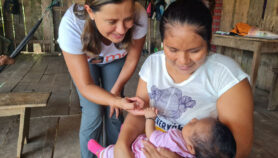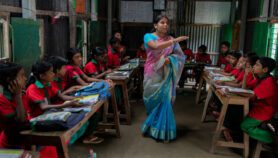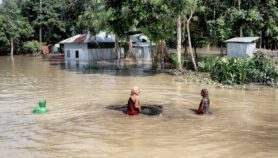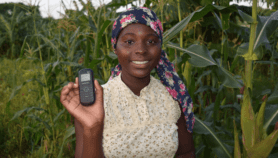Send to a friend
The details you provide on this page will not be used to send unsolicited email, and will not be sold to a 3rd party. See privacy policy.
Asian rice farmers using laptop computers or fishermen navigating with handheld global positioning system (GPS) devices are the kind of images often associated with use of information and communication technologies (ICTs) for development. But such approaches have limited application and radio and television often still represent the most effective means of communicating information to poor communities in developing countries.
In this article, Nalaka Gunawardene, founder of Television Trust for the Environment (TVE) Asia Pacific, says ICTs can help South Asian countries overcome poverty but they are not a cure-all. He stresses the need for ICT programmes to use locally relevant information — not mere translations — and for programme implementers to “stop treating poor people as some kind of sub-human species with a simpler set of living needs and aspirations”.
Gunawardene says that those implementing ICT programmes often bring biases. Many poverty experts, for instance, overlook the urban poor in Asia, where 40 per cent of people live in cities. And research suggests ICT projects should not only provide information about survival and food, but also about bank loans, jobs, insurance, culture and politics.
Link to full Global Knowledge Partnership article by Nalaka Gunawardene













